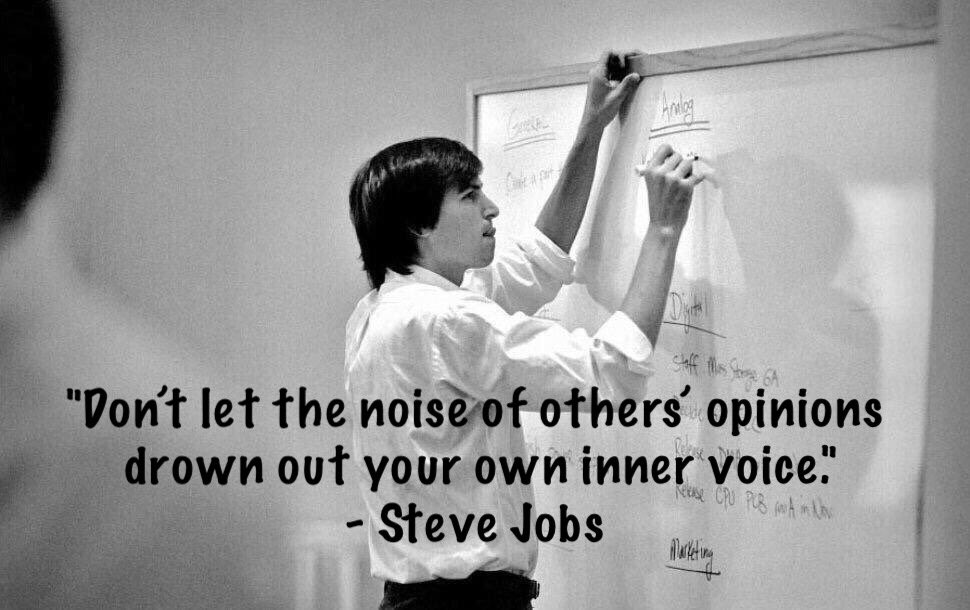
Jesse Livermore On You Don’t Have To Be Active Every Day



 1) Do the problems that affect your trading also impact other areas of your life? – Let’s say that you find yourself overtrading and taking too much risk relative to your planned exposure. You realize that these lapses of discipline are costing you money and creating significant frustration. The key question to ask is whether these lapses also occur in other spheres of life: in managing personal finances, in failing to follow through on personal responsibilities, or in impulsive decision-making regarding career, relationships, and the future. If so, then you know that this is a general problem that is spilling over into trading. Working with a psychologist or other licensed therapist or counselor could be the best way to go, as this is not uniquely a trading problem. Alternatively, if the problem truly is unique to trading, then it is probably triggered by situational factors related to how you are trading. Relying on a trading coach to review your trading practices and address these factors can be promising.
1) Do the problems that affect your trading also impact other areas of your life? – Let’s say that you find yourself overtrading and taking too much risk relative to your planned exposure. You realize that these lapses of discipline are costing you money and creating significant frustration. The key question to ask is whether these lapses also occur in other spheres of life: in managing personal finances, in failing to follow through on personal responsibilities, or in impulsive decision-making regarding career, relationships, and the future. If so, then you know that this is a general problem that is spilling over into trading. Working with a psychologist or other licensed therapist or counselor could be the best way to go, as this is not uniquely a trading problem. Alternatively, if the problem truly is unique to trading, then it is probably triggered by situational factors related to how you are trading. Relying on a trading coach to review your trading practices and address these factors can be promising.
2) Do the problems primarily result from poor trading, or are the problems a primary cause of poor trading? – This can be tricky to sort out, because the direction of causality often goes both ways. Many times, poor trading practices–such as trading excessive risk–lead to emotional fallout, such as frustration, anxiety, or even depression. Working on changing emotions might be helpful, but the root cause–the faulty money management–needs to be addressed. Conversely, there are times when emotional problems, such as performance anxiety, get in the way of trading plans and trading results. It is very helpful to examine trading problems in a step-by-step fashion, to see where emotions are affecting trading and to see where trading is creating emotional pressures. (more…)


 Sun Tzu’s Art of War is a classic piece of work that is widely read and applied to many fields, due to it’s fundamental nature that is highly adaptable to many areas of our lives. In this post, I extracted parts of the work and applied to trading and in doing so, hope to introduce the important trading concepts to you. I have also group and categorize them for easy understanding.
Sun Tzu’s Art of War is a classic piece of work that is widely read and applied to many fields, due to it’s fundamental nature that is highly adaptable to many areas of our lives. In this post, I extracted parts of the work and applied to trading and in doing so, hope to introduce the important trading concepts to you. I have also group and categorize them for easy understanding.
To put it in the context of trading, I have rationalised the following terms:
– General = You, the trader
– Battle = Trading the market/making a trade
– Men, Soldiers = Your capital, dollars!
ON WINNING IN THE MARKET
“Now the general who wins a battle makes many calculations in his temple ere the battle is fought. The general who loses a battle makes but few calculations beforehand. Thus do many calculations lead to victory, and few calculations to defeat: how much more no calculation at all! It is by attention to this point that I can foresee who is likely to win or lose.”
Calculations are to be made prior to any trade. What is the risk-reward ratio? What is the stop loss level and the amount that I am willing to lose? What is the size of position to take? How much leverage can I take? If the price moves to $XXX, what action should I take? What is my price objective? What is the proabability of winning? These are just questions that need to be answered and determined BEFORE a trade is made. THE BATTLE/TRADE IS WON BEFORE IT IS FOUGHT/MADE.
“If you know the enemy and know yourself, you need not fear the result of a hundred battles. If you know yourself but not the enemy, for every victory gained you will also suffer a defeat.
If you know neither the enemy nor yourself, you will succumb in every battle.” (more…)
1) Becoming Overly Focused on P/L During Trading – Watching your profits or losses tick up and down during a trade; becoming anxious about P/L and letting P/L, not a trading plan, dictate when you get out of a trade. It’s a recipe for performance anxiety. By focusing on process goals rather than P/L, you can stay grounded in good trading practices and minimize performance stresses.
2) Trading Much Larger After a Series of Winning Trades – It is common that traders become overconfident after a series of wins and decide to increase their risk by a factor of two or more. This often leads to large losing trades that wipe out much of the profit, generating frustation and discouragement. Just as it doesn’t make sense to plow into a trade after a large move has already occurred, it doesn’t make sense to plow into risk after a series of profitable trades.
3) Failing to Learn From Losing Trades – Traders often want to put losses behind them and not dwell on negatives. The downside is that they don’t learn from their losses and thus miss opportunities to understand what’s happening in markets and what they might be doing wrong. This is especially important following a series of losing trades: either you’re not seeing the markets well, or you’re not acting well on your perceptions. Both scenarios offer learning opportunities that can help generate profits down the line.
It’s common to think of trading as a stressful occupation, but much of the stress is self-generated. By staying focused on “best practices” in trading, we minimize fear and frustration and build confidence in our development.


